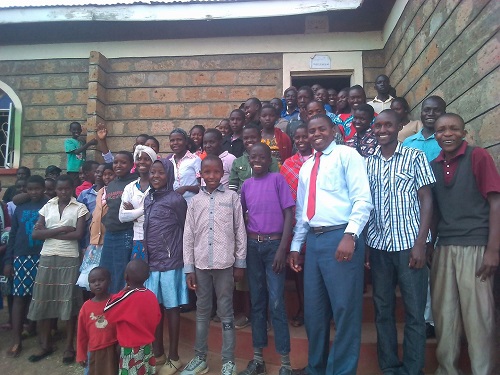Church hospitality and catering teams play a crucial role in creating a welcoming and nourishing environment for worshippers and guests. These teams ensure that all attendees feel valued and comfortable, whether during regular services, special events, or community gatherings. This comprehensive guide explores the biblical origins of hospitality, essential attributes, duties, qualifications, and differences between hospitality officers, ushers, sanctuary keepers, and deacons. It also discusses common mistakes, current trends, and includes practical abbreviations and acronyms used in the field. This document serves as a call to action to explore more resources and connect with Ambassador Steve Mbugua for further guidance.
Biblical Origins of Hospitality
Hospitality is deeply rooted in biblical teachings. The Bible emphasizes the importance of welcoming strangers and showing kindness to others. Scriptures such as Hebrews 13:2 (“Do not forget to show hospitality to strangers, for by so doing some people have shown hospitality to angels without knowing it”) and 1 Peter 4:9 (“Offer hospitality to one another without grumbling”) highlight the spiritual significance of hospitality. These teachings inspire church hospitality teams to create an inclusive and welcoming environment for all.
The Role of Hospitality in the Early Church
In the early Christian church, hospitality was a fundamental practice. The act of welcoming travelers, providing for the needy, and offering a communal space for worship and fellowship was seen as an essential expression of faith. Early Christians often met in homes where the host’s hospitality was crucial for the functioning of the church. Acts 2:46 describes how believers met together and broke bread in their homes, emphasizing the intimate and inclusive nature of early Christian hospitality.
Hospitality in the Old Testament
The Old Testament also provides numerous examples of hospitality. Abraham’s hospitality to three strangers in Genesis 18 is one of the most cited examples. Abraham’s prompt and generous response to his visitors is often regarded as a model of hospitality. Similarly, the story of Lot in Genesis 19, who insisted on hosting the angels despite the danger, underscores the cultural and spiritual importance of hospitality in ancient times.
Hospitality as a Commandment
Hospitality is not just encouraged but commanded in the Bible. Romans 12:13 instructs believers to “share with the Lord’s people who are in need. Practice hospitality.” This directive highlights the importance of hospitality as an ongoing practice and not just a one-time act. By consistently showing hospitality, church members live out their faith in practical and impactful ways.
Essential Attributes and Duties
Attributes
Church hospitality team members must embody certain attributes to effectively fulfill their roles:
1. Warmth and Friendliness: The ability to greet and engage with guests in a friendly manner is fundamental. A warm welcome sets a positive tone for a guest’s experience.
2. Patience: Remaining calm and patient, even in challenging situations, ensures that all guests feel respected and valued.
3. Attention to Detail: This ensures all aspects of hospitality, from seating arrangements to food service, are meticulously managed.
4. Good Communication: Effective verbal and written communication skills are essential for providing clear information and coordinating with team members.
5. Empathy: Understanding and anticipating the needs of guests helps create a more welcoming environment.
6. Reliability: Being consistently dependable in fulfilling duties is crucial for maintaining smooth operations.
Duties
The specific duties of church hospitality team members can vary but generally include:
1. Greeting Guests: Welcoming attendees at the entrance and making them feel comfortable.
2. Providing Information: Offering information about the church, its services, and activities.
3. Assisting with Seating: Helping guests find seats, especially during crowded services or special events.
4. Coordinating Events: Organizing and managing the hospitality aspects of church events, including weddings, funerals, and community gatherings.
5. Ensuring Cleanliness: Maintaining cleanliness in the hospitality areas, including dining spaces and restrooms.
6. Food Service: Preparing, serving, and managing food and beverages for church events and gatherings.
Expanded Duties for Large Congregations
In larger congregations, the scope of duties may expand to include:
1. Volunteer Coordination: Managing a larger team of volunteers to ensure all tasks are covered.
2. Logistics Management: Overseeing the logistics of large-scale events, including setup, teardown, and coordination with external vendors.
3. Emergency Preparedness: Being prepared to handle emergencies, such as medical incidents or security concerns, in a calm and efficient manner.
Qualifications for Hospitality Team Members
1. Interpersonal Skills: Excellent ability to interact with a diverse group of people, ensuring everyone feels welcome and valued.
2. Organizational Skills: Capable of organizing and managing multiple tasks simultaneously, ensuring smooth operations.
3. Teamwork: Works well in a team setting, supporting and collaborating with other team members.
4. Leadership Skills: Demonstrates leadership qualities when necessary, guiding and motivating the team.
5. Problem-Solving Abilities: Capable of resolving issues quickly and effectively, ensuring minimal disruption to events.
6. Calm Under Pressure: Maintains composure in high-stress situations, providing reassurance to guests and team members.
7. Adaptability: Flexibility to adjust to changing circumstances and guest needs, ensuring a positive experience for all.
8. Trustworthiness: Exhibits reliability and trustworthiness in all tasks, gaining the confidence of guests and team members.
9. Previous Experience: Prior experience in hospitality or customer service roles is beneficial, providing a solid foundation for performing duties effectively.
Roles and Responsibilities
Hospitality Officers
Focus: The overall guest experience and event management.
Duties:
• Greeting guests warmly and making them feel welcome.
• Providing information about the church and its services.
• Ensuring guest comfort by anticipating and addressing their needs.
• Managing hospitality teams, including training and coordinating volunteers.
Ushers
Focus: Seating and maintaining order during services.
Duties:
• Assisting guests with seating arrangements.
• Distributing materials, such as bulletins or hymnals.
• Guiding guests to various parts of the church as needed.
• Maintaining order and assisting with the flow of guests during services.
Sanctuary Keepers
Focus: Maintaining the cleanliness and order of the sanctuary.
Duties:
• Cleaning the sanctuary before and after services.
• Arranging seating and ensuring the sanctuary is welcoming.
• Managing any decorations or special setups required for services.
Deacons
Focus: Providing spiritual and logistical support for church functions.
Duties:
• Assisting with the administration of sacraments.
• Supporting the pastoral staff with various duties.
• Helping with the governance and operational aspects of the church.
• Providing pastoral care and support to the congregation.
Common Mistakes in Church Hospitality and Catering
1. Failure to Communicate: Miscommunication leading to misunderstandings or security lapses.
2. Lack of Vigilance: Being distracted or inattentive, allowing security breaches to occur.
3. Poor Planning: Inadequate food quantities or variety for the number of attendees.
4. Inefficient Service: Long wait times or disorganized meal service.
5. Lack of Dietary Options: Failure to accommodate various dietary restrictions or preferences.
6. Budget Overruns: Overspending on catering supplies or exceeding budget allocations.
7. Communication Breakdown: Miscommunication leading to incorrect meal orders or arrangements.
8. Untrained Staff: Issues arising from untrained volunteers or staff members.
9. Presentation Mishaps: Food presentation or decor that does not meet expectations.
10. Waste Management Problems: Challenges in managing food waste or leftover supplies.
Detailed Examples of Common Mistakes
1. Failure to Communicate: For example, if the catering team is unaware of a last-minute change in the number of attendees, this can lead to a shortage of food or seating arrangements, causing frustration among guests.
2. Lack of Vigilance: Hospitality team members who are not attentive may miss important cues from guests needing assistance, leading to a negative experience.
3. Poor Planning: Not considering the dietary needs of guests can result in some attendees not having appropriate food options, leading to dissatisfaction and complaints.
4. Inefficient Service: Disorganized service lines or slow food replenishment can cause long waits and inconvenience guests.
5. Lack of Dietary Options: Failing to offer vegetarian, vegan, gluten-free, or allergy-friendly options can alienate guests with specific dietary needs.
6. Budget Overruns: Mismanagement of resources can lead to unnecessary expenses, impacting the church’s budget and limiting future event possibilities.
7. Communication Breakdown: Miscommunication between team members can lead to incorrect meal orders, causing confusion and potential waste.
8. Untrained Staff: Volunteers who are not adequately trained may struggle with their duties, leading to inefficiencies and mistakes during events.
9. Presentation Mishaps: Poor presentation of food or decorations can detract from the overall experience and reflect poorly on the church’s attention to detail.
10. Waste Management Problems: Inadequate planning for managing leftovers and waste can result in excess food going to waste, which is not only costly but also environmentally unfriendly.
Current Trends in Church Hospitality and Catering
1. Sustainable Practices: Embracing eco-friendly food sourcing and waste reduction measures.
2. Healthy Options: Offering more nutritious and wholesome meal choices.
3. Customization: Providing customizable menu options to cater to diverse preferences.
4. Technology Integration: Using online platforms for meal reservations and pre-ordering.
5. Local Sourcing: Partnering with local farmers and suppliers for fresh ingredients.
6. Cultural Diversity: Incorporating diverse cuisines to reflect the congregation’s cultural backgrounds.
7. Allergen Awareness: Heightened focus on allergen awareness and accommodation.
8. Interactive Experiences: Interactive cooking demonstrations or food tastings during events.
9. Community Engagement: Collaborating with local communities for food-related initiatives.
10. Virtual Offerings: Providing virtual cooking classes or food-related content for remote attendees.
In-Depth Look at Trends
1. Sustainable Practices: Churches are increasingly adopting sustainable practices, such as using biodegradable utensils, minimizing food waste through careful planning, and sourcing ingredients from local organic farms. This not only reduces the environmental impact but also aligns with the biblical principle of stewardship of God’s creation.
2. Healthy Options: With a growing awareness of health and wellness, many churches now offer healthier food options at their events. This includes incorporating more fruits, vegetables, whole grains, and lean proteins into their menus.
3. Customization: Customizable menus allow guests to choose their meals based on personal preferences and dietary restrictions. This trend reflects a broader movement towards personalization in the hospitality industry.
4. Technology Integration: Utilizing technology to streamline operations is becoming more common. Churches are using apps for event registrations, meal reservations, and even virtual check-ins to enhance efficiency and guest experience.
5. Local Sourcing: By sourcing food locally, churches support local businesses and farmers, reduce their carbon footprint, and ensure fresher, more flavorful ingredients.
6. Cultural Diversity: Reflecting the cultural diversity of the congregation in the menu can make all members feel included and celebrated. This might involve offering dishes from different cultures during church events.
7. Allergen Awareness: With the rise of food allergies and intolerances, churches are becoming more vigilant about labeling allergens and providing safe options for those with dietary restrictions.
8. Interactive Experiences: Engaging guests through interactive experiences, such as live cooking demonstrations, food tastings, or culinary workshops, can make events more enjoyable and memorable.
9. Community Engagement: Partnering with local community organizations for food drives, community meals, and other food-related initiatives helps strengthen community ties and serve those in need.
10. Virtual Offerings: The pandemic has accelerated the adoption of virtual offerings. Churches now provide online cooking classes, virtual meal preparation sessions, and other digital content to engage members who may not be able to attend in person.
Abbreviations and Acronyms in Church Hospitality and Catering
1. F&B (Food and Beverage): This term is commonly used in the hospitality industry to refer to all food and drink services provided at an event. In a church setting, it encompasses everything from refreshments served during fellowship to full meals prepared for special events.
2. HACCP (Hazard Analysis and Critical Control Points): This systematic approach to food safety helps identify and manage potential hazards in the food production process. Ensuring HACCP compliance is crucial for church kitchens to prevent foodborne illnesses.
3. BOH (Back of House): Refers to the areas of the hospitality operation that guests do not see, such as the kitchen, storage, and staff areas. Efficient management of the BOH is essential for smooth operations.
4. FOH (Front of House): Includes all areas where guests interact, such as dining areas, entryways, and reception areas. The FOH staff is responsible for ensuring a pleasant experience for guests.
5. ROI (Return on Investment): A measure used to evaluate the efficiency of an investment. In church hospitality, ROI might be considered in terms of guest satisfaction, volunteer engagement, or the successful outcome of events.
6. PPE (Personal Protective Equipment): Items such as gloves, masks, and aprons worn by staff to ensure safety and hygiene during food preparation and service.
7. CCP (Critical Control Point): A step in the food handling process where controls can be applied to prevent or eliminate food safety hazards.
8. FDA (Food and Drug Administration): The U.S. agency responsible for regulating food safety standards. Churches must comply with FDA guidelines to ensure food safety.
9. GMO (Genetically Modified Organism): Foods derived from organisms whose DNA has been altered in a way that does not occur naturally. Awareness of GMO ingredients can be important for catering to health-conscious guests.
10. QC (Quality Control): Processes used to ensure that food products meet quality and safety standards. Effective QC procedures help maintain high standards in church hospitality.
Call to Action
Explore more resources and connect with Ambassador Steve Mbugua for further guidance on church hospitality and catering. Reach out via WhatsApp at +254724036078, email at info@ambstevembugua.co.ke, visit the website www.ambstevembugua.co.ke, and follow on all social media platforms as @Ambstevembugua. Share this document to promote excellence in church hospitality and catering practices.
This comprehensive guide aims to equip church hospitality and catering teams with the knowledge and skills needed to create memorable experiences for worshippers and guests. By understanding their roles, qualifications, and current trends, these teams can elevate the level of hospitality within their congregations and foster a welcoming and nourishing environment for all.
Additional Sections for Expanded Guide
Training and Development for Hospitality Team Members
Investing in training and development for hospitality team members is crucial for maintaining high standards of service. Training programs can include:
1. Customer Service Training: Teaching team members how to interact with guests in a friendly and professional manner.
2. Food Safety and Hygiene Training: Ensuring all team members are knowledgeable about proper food handling and hygiene practices.
3. Emergency Response Training: Preparing team members to handle emergencies, such as medical incidents or security threats.
4. Leadership Training: Developing the leadership skills of team members to manage volunteers and coordinate events effectively.
5. Cultural Sensitivity Training: Educating team members on the cultural backgrounds and preferences of the congregation to provide inclusive hospitality.
Case Studies of Successful Church Hospitality Programs
Examining successful church hospitality programs can provide valuable insights and inspiration. Some examples include:
1. Community Meal Programs: Churches that regularly host community meals for the needy, creating a welcoming environment and fostering community spirit.
2. Event Coordination: Churches that excel in organizing large-scale events, such as conferences and retreats, with seamless hospitality services.
3. Volunteer Engagement: Churches with robust volunteer programs that effectively train and engage volunteers in hospitality roles.
Tips for Effective Event Planning and Execution
Successful event planning involves several key steps:
1. Pre-Event Planning: Detailed planning of the event, including menu selection, guest list, and logistics.
2. Volunteer Coordination: Ensuring all volunteers are well-trained and assigned specific roles.
3. On-the-Day Execution: Overseeing the execution of the event, managing any issues that arise, and ensuring a smooth flow.
4. Post-Event Evaluation: Gathering feedback from guests and volunteers to identify areas for improvement.
Technology Tools for Church Hospitality Management
Leveraging technology can streamline hospitality management:
1. Event Management Software: Tools for planning and coordinating events, managing guest lists, and tracking RSVPs.
2. Volunteer Management Platforms: Software to recruit, schedule, and communicate with volunteers.
3. Online Reservation Systems: Platforms for guests to make meal reservations or register for events.
4. Communication Tools: Apps and platforms for effective communication between team members and with guests.
Budgeting and Financial Management
Effective budgeting and financial management are crucial for the sustainability of hospitality programs:
1. Budget Planning: Creating detailed budgets for events and hospitality services.
2. Expense Tracking: Monitoring expenses to ensure they stay within budget.
3. Fundraising Strategies: Developing strategies to raise funds for hospitality programs, such as donations, sponsorships, and fundraising events.
Marketing and Outreach
Promoting church events and hospitality programs can increase engagement and participation:
1. Social Media Marketing: Using social media platforms to promote events and share updates.
2. Email Campaigns: Sending newsletters and event invitations to the congregation.
3. Community Outreach: Engaging with the local community to raise awareness of church programs and services.
4. Promotional Materials: Creating flyers, posters, and other promotional materials to advertise events.
Feedback and Continuous Improvement
Gathering feedback and continuously improving hospitality services is vital for maintaining high standards:
1. Guest Feedback: Collecting feedback from guests through surveys or comment cards.
2. Volunteer Feedback: Seeking input from volunteers on their experiences and suggestions for improvement.
3. Regular Reviews: Conducting regular reviews of hospitality practices and making necessary adjustments.
Conclusion
Church hospitality and catering teams have the power to transform a congregation’s experience by creating a welcoming, inclusive, and nourishing environment. By understanding the biblical origins of hospitality, embodying essential attributes, fulfilling key duties, and staying informed about current trends, these teams can significantly enhance the church’s impact on its members and the wider community. Through continuous learning, effective planning, and leveraging technology, church hospitality teams can ensure their services remain exemplary and relevant in an ever-changing world.
For further guidance and resources, connect with Ambassador Steve Mbugua and explore the wealth of information available to help you excel in your hospitality and catering roles. Together, we can create a church environment where every guest feels welcomed, valued, and cared for.
READ MORE
Building a Church Safety Culture
Church Ushering Training
Church Protocol
Church Security Video



















